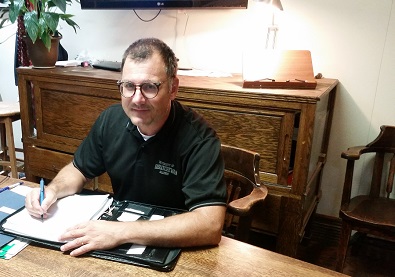Lawyer Peter Abrametz will represent Tasia Natewayes at the Supreme Court. Photo by Chelsea Laskowski
An Aboriginal Saskatchewan woman’s appeal will be heard before the Supreme Court.
Tasia Natewayes, 30, is currently serving eight years for a Court of Appeals ruling that found her guilty of being a party to manslaughter in Prince Albert and set aside the trial conviction of break and enter with intent to commit an indictable offence.
Her lawyer argues that she should be acquitted entirely when the appeal heads to Ottawa in January.
“It’s all or nothing,” said defence lawyer Peter Abrametz.
Not all cases are able to head to the Supreme Court, but this case is special because at the April 2015 trial, Natewayes was acquitted of manslaughter but that was overturned in the Court of Appeals in November.
Those rulings were in relation to Natewayes’ role as getaway driver for the males who killed 18-year-old Dakota Nayneecassum in September of 2012.
The males broke into a Prince Albert house after Natewayes’ then-boyfriend, Kyle Goodrich, had an earlier confrontation with a man who was living there, Cory Vandall.
Goodrich was among the five males involved in stabbing 18-year-old Dakota Nayneecassum, who was visiting the home at the time and was previously uninvolved with the bad blood between Goodrich and Vandall. Nayneecassum died in hospital from blood loss.
At issue at trial and at appeal, was whether Natewayes was aware or could reasonably have known bodily harm was the foreseeable consequence of the unlawful act.
Abrametz will argue in Canada’s highest court that Natewayes hadn’t known there would be a break-in, let alone a death. This is something he maintained throughout the trial.
“It’s my view, it’s my read of it, and this is my submission is, there’s no evidence that she actually knew that this home invasion and attack would occur,” he said.
Abrametz will make a case that there was an error in law because the Court of Appeals ruling relied on information that wasn’t considered at trial.
Appeals Justice Richards wrote:
“[I]t was clearly open to the trial judge to find that Ms. Natewayes knew a home invasion was about to happen. Indeed, it is difficult to see how any other conclusion was possible. Nobody had been outside Mr. Vandall’s house and the only way to get at Mr. Vandall was to force an entry.”
The information about nobody being outside the house is what Abrametz takes issue with, and he argues is an error in law.
“The conviction should not have been upheld upon appeal using a snippet of information that was not considered at trial,” he said.
Next week, defence will seek an interim release to allow Natewayes to go home until the case goes to Ottawa in January.
Natewayes is a treaty member in the Sandy Bay area. She was initially sentenced in June of 2015, but was out on interim release until the Court of Appeals ruling ordered her back into custody as of Nov. 20, 2015.
